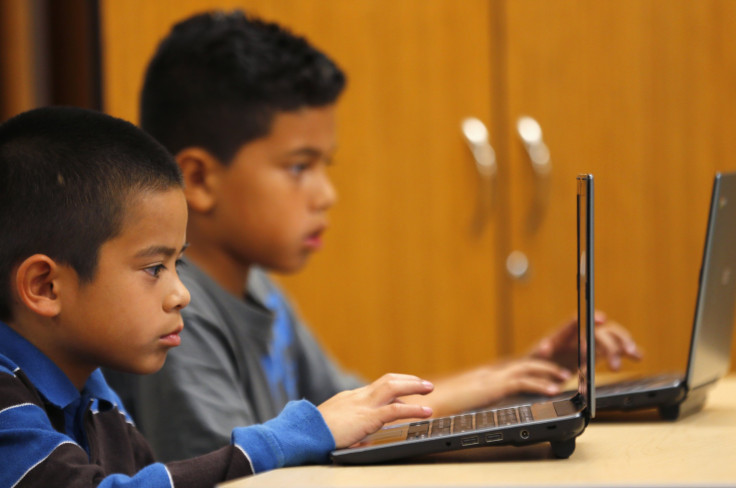Online Safety For Kids: Parents Think Their Children Are Safe Online, But Are They?

You see them everywhere – toddlers with tablets, little kids with laptops, adolescents with iPhones. Here’s the instant message they’re sending: Children across the United States are gaining increased access to the online world, and with that comes concern about what they do there.
A Family Online Safety Institute (FOSI) survey released Wednesday found 93 percent of parents said they believed their children were somewhat safe online. Of that, 37 percent said they thought the kids were “very safe.” The findings raise questions about the ever-growing issue of Internet safety and how parents perceive the risk level for their children.
Often, parents tend to think their children are safer than they are, said Donna Rice Hughes, president and CEO of Internet safety group Enough Is Enough. Some parents reason that their kids are well-behaved, so they should be immune to bad things on the Internet. Others parents are too old to grasp the changing technology. “When you have your child connected, you’re opening up all the wonderful parts of the Internet – great content, safe people,” Hughes said, but “you’re also opening up the opportunity for them to access harmful content and for dangerous people to access them.”
Despite an increase in awareness about online safety, parents are still out of touch, said Ciaran Connolly, co-founder of NoBullying.com. "A child could be sitting beside them on the couch ... on their mobile device, laptop or computer, and they could be talking to any one of a billion people online," he said. "Parents generally believe because they can physically see them, they're very safe. But that is often not the case."
The FOSI survey showed parents were trying to get involved in their kids’ online lives. More than 90 percent had talked to their kids about the potential benefits and harms of being online, and most parents had reviewed their children’s browsing history. Conducted in September and October, the survey included responses from 584 parents with children ages 6 to 17.
Even though hype and concern about children’s online safety have increased, the actual crimes have generally not, with rates of child sexual abuse dropping in the last 20 years, said Janis Wolak, a senior researcher at the University of New Hampshire’s Crimes Against Children Research Center. Police have started responding better, too -- between 2006 and 2013, law enforcement agencies significantly increased their efforts to arrest people using the Internet to solicit sex from minors. “Kids are safer than they were 20 years ago,” Wolak said.
Almost a quarter of parents interviewed by FOSI were worried about their children being harmed by stalkers, molesters, predators or other criminals online. Another 69 percent said they were concerned about their kids just using the Internet to communicate with stranger. But Wolak said parents should give children credit. “Most kids are pretty savvy and aren’t going to get involved in sexual interactions with strangers on the Internet,” Wolak said.
Data from the FBI’s Internet Crime Complaint Center showed only a slight increase in children’s cybercrime recently. In 2013, only 3.4 percent of people who filed criminal complaints about cybercrime were under 20 years old. The year before that, under-20 complainants comprised 3.24 percent.
Teaching children to fear the Internet isn’t productive, said Mike Hill, a senior producer with NetSmartz, an organization under the National Center for Missing and Exploited Children. Instead, parents and kids should focus on becoming good digital citizens. They both need to make smart choices when it comes to privacy. “The Internet's just a different world you have to protect yourself on,” Hill said.
The FOSI survey results seemed to reflect an understanding of that. Overall, 53 percent of FOSI parents said the positives of their kids' using electronic devices outweighed the negatives. About 42 percent said they thought the two were equal.
Data aside, Wolak said the online safety dialogue should be part of a larger discussion. “When people talk about ‘Are kids safe online?,’ the bigger issue is ‘Are kids safe in general in different areas of their lives?,’” she said.
© Copyright IBTimes 2024. All rights reserved.












